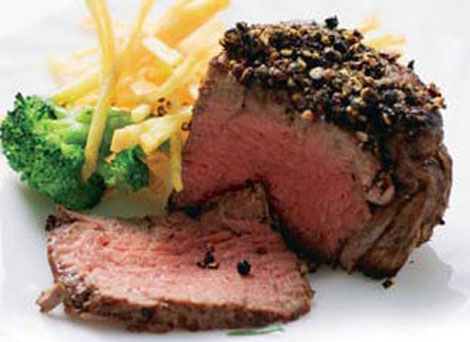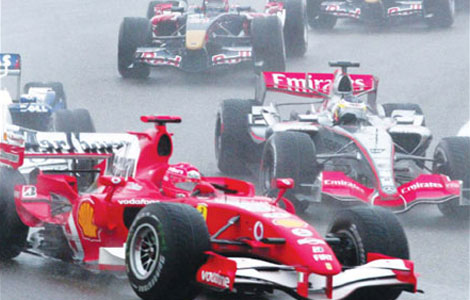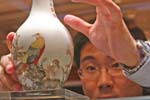Scotch meat for worthy connoisseurs
Updated: 2011-04-01 10:56
(China Daily European Weekly)
 |
|
Scottish meat produders are looking to develop a focused clientele in China. |
Scotland is looking to make inroads in the natural meat market by boosting sale of meat products in China's high-end market.
Quality Meat Scotland (QMS), a non-departmental public body of the Scottish government is currently in talks to sell its red meat products in China. Laurent Vernet, head of marketing at QMS, says that Scotland has a lot to offer China in quality meat, especially natural meat.
"Scotland is a tiny country and our production is very limited. We have around 1.7 million cattle, 4.6 million sheep and only 395,000 pigs. Our annual meat production is around 175,000 tons of beef, 31,000 tons of lamb and 47,000 tons of pork," Vernet says. "Most of our livestock is grass-fed (except pigs) and we do not use any hormones in the food. Usage of drugs for livestock is strictly controlled and monitored by qualified veterinarians."
Despite meat being an integral part of Chinese cuisine, most farmers find it difficult to raise livestock that are naturally fed or not given hormones or other drugs, because of the high costs.
Vernet says that Scottish meat producers cannot produce enough meat for the mass market, but would look to develop a focused clientele in China.
"There is a growing middle and upper class market in China. Our beef is very expensive and volumes low. So our products are not suitable for the mass market," says Vernet.
"We see three markets in China. The first is the business market. Since our beef is natural and grass-fed, it is lean and easy to digest and hence perfect for business lunches.
"We will target Western-educated Chinese consumers who look for exclusive and tasty Western-style food and also hope to woo traditional Chinese consumers looking for the cuts that we do not value in Scotland like shank, tendon and marrow bones."
Vernet cites the non-use of feedlots and growth hormones as the main reason for higher prices. Using traditional and natural methods of raising livestock costs more money than keeping animals in feed lines and using drugs to enhance growth in animals but results in supposedly safer meat. The EU had banned imports of hormone-enriched beef in the 1990s citing possible links between the mad-cow disease and testosterone-enhanced beef. But the ban has been overruled by the World Trade Organization, with the EU trying to appeal.
"China is definitely a market for the Scottish red meat industry. We feel there are opportunities on both sides, but at the moment we cannot progress because of administrative decisions," Vernet says. "We are confident that these constraints will be lifted through communication and mutual understanding."
China Daily
E-paper

Green light
F1 sponsors expect lucrative returns from Shanghai pit stop
Buying into the romance
Born to fly
Light of hope
Specials

Share your China stories!
Foreign readers are invited to share your China stories.

No more Mr. Bad Guy
Italian actor plans to smash ‘foreign devil’ myth and become the first white kungfu star made in China.

Art auctions
China accounted for 33% of global fine art sales.
